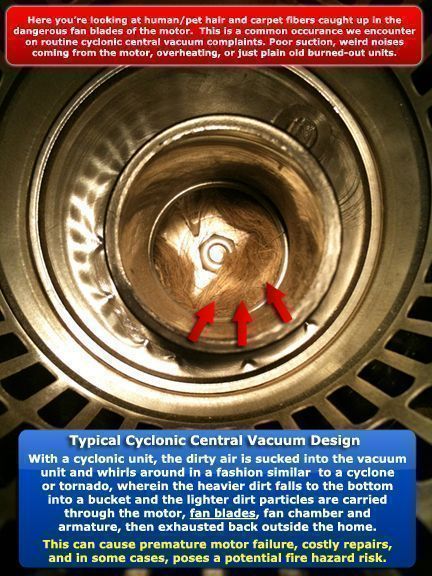

If you are currently in the market shopping for a central
vacuum system, there's no doubt you've been bombarded with a
host of exaggerated performance claims. Other considerations
include ease of use, maintenance and of course overall
performance
and feel. It is our hope, that this section will
help guide you through the exercise of purchasing a central
vacuum unit. There are many choices available on the market
today and a multitude of factors which will influence the
system you choose. One of the leading factors will be the
vacuum units filtration, which is the first line of defense
when protecting your motor. Currently there are four methods
of filtration
currently used for central vacuums.
1) Paper Bag System
2) Bagless With Self Cleaning Filter
3) Filtered Cyclonic Action With Fixed Filter
4) True-Cyclonic® Action With Outside Exhaust
Venting
Some will even private-label under many different
names. And, ultimately, each manufacturer will tell you,
unequivocally, of their preference for either bag-style
filtration or cyclonic-style filtration. Within the major
built-in vacuum industry you will find claims ranging from
"true-cyclonic", "self-cleaning", and "100% efficiency at
all times" to "guaranteed never to clog" and filters with
"no resistance to the air".

In a cyclonic unit, the dirty air is forced through the
vacuum chamber in a tornado style of movement. The heavier
dirt falls down the bottom of the canister and the lighter
dust is carried off through the motor and then exhausted
outside.
 Also, over filling the unit will cause very serious motor
failure or problems. You must empty the canister often, more
than others. You can't let it go further than 3/4 full or
else the dirt will get into the motor causing your motor to
burn out. Before you know it 6 months has gone by and you
find out your motor has seized and failed. This is a
frequent problem, and is NOT covered under warranty. All
this is noted in the small print of all central vacuum
warranties. This is considered abuse and neglect, and
therefore not covered. Also, over filling the unit will cause very serious motor
failure or problems. You must empty the canister often, more
than others. You can't let it go further than 3/4 full or
else the dirt will get into the motor causing your motor to
burn out. Before you know it 6 months has gone by and you
find out your motor has seized and failed. This is a
frequent problem, and is NOT covered under warranty. All
this is noted in the small print of all central vacuum
warranties. This is considered abuse and neglect, and
therefore not covered.
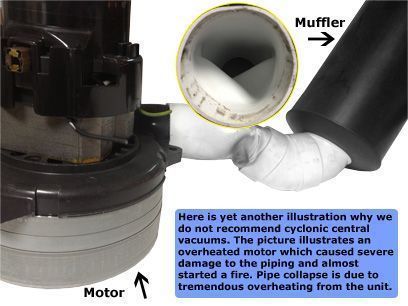 The few manufacturers that claim to use "true-cyclonic", or
a form of, actually don't. "True-cyclonic" is which ALL the
filtration is achieved by creation of a tornado that uses
the force of gravity to separate the dirt and debris from
the intake air. Though some of the cyclonic manufacturers
come very close to "true-cyclonic" action, all of them use
some type of filter in their systems. A cyclonic
manufacturer had this to say, "a guard screen is located
directly above the dirt pan inside the power unit. It should
be inspected and cleaned occasionally. This is to prevent
such things as carpet fiber, cloth, etc. from getting into
the motor's impeller blades. The few manufacturers that claim to use "true-cyclonic", or
a form of, actually don't. "True-cyclonic" is which ALL the
filtration is achieved by creation of a tornado that uses
the force of gravity to separate the dirt and debris from
the intake air. Though some of the cyclonic manufacturers
come very close to "true-cyclonic" action, all of them use
some type of filter in their systems. A cyclonic
manufacturer had this to say, "a guard screen is located
directly above the dirt pan inside the power unit. It should
be inspected and cleaned occasionally. This is to prevent
such things as carpet fiber, cloth, etc. from getting into
the motor's impeller blades.
 A
build up of dirt or other larger, clogging type material may
result in loss in suction." But, wait a minute! Their own
sales brochure claimed "100% efficiency at all times". Both
statements can not be true! Furthermore, the service manual
goes on to say that, "much excessive, loose lint and nap,
normal in all new floor coverings, is removed in these early
cleanings, and some will tend to settle on the screen,
allowing a buildup that will impair the suction power unless
removed." To advertise "no filters" and then go ahead and
have one in the system is somewhat misleading to the
consumer in the sales brochure. Another cyclonic
manufacturer states they use a metal screen but, "the pores
of this metal screen are sufficiently large to insure that
no plugging results from normal use. Therefore, you have
constant airflow and no loss of cleaning ability." Sounds
pretty cool right? In their service manual it says, "if the
screen becomes clogged with lint and rug fibers, it will
decrease your vacuum power to a point where you are unable
to clean properly due to the decrease in air flow." Again,
we have not only a contradiction in claims, but a
manufacturers admission of poor design. A
build up of dirt or other larger, clogging type material may
result in loss in suction." But, wait a minute! Their own
sales brochure claimed "100% efficiency at all times". Both
statements can not be true! Furthermore, the service manual
goes on to say that, "much excessive, loose lint and nap,
normal in all new floor coverings, is removed in these early
cleanings, and some will tend to settle on the screen,
allowing a buildup that will impair the suction power unless
removed." To advertise "no filters" and then go ahead and
have one in the system is somewhat misleading to the
consumer in the sales brochure. Another cyclonic
manufacturer states they use a metal screen but, "the pores
of this metal screen are sufficiently large to insure that
no plugging results from normal use. Therefore, you have
constant airflow and no loss of cleaning ability." Sounds
pretty cool right? In their service manual it says, "if the
screen becomes clogged with lint and rug fibers, it will
decrease your vacuum power to a point where you are unable
to clean properly due to the decrease in air flow." Again,
we have not only a contradiction in claims, but a
manufacturers admission of poor design.
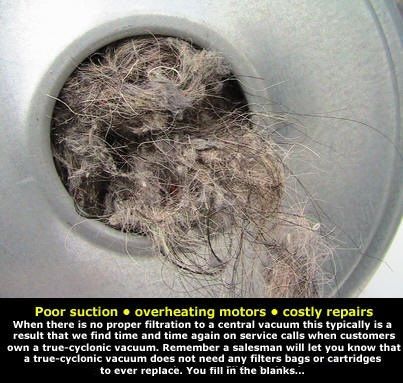 This
snapshot was taken on a routine service call by our
technicians, a common sight we see and encounter. Pretty
gross. Allergy ladened. This
snapshot was taken on a routine service call by our
technicians, a common sight we see and encounter. Pretty
gross. Allergy ladened.
Some True-Cyclonic
systems remove the heavy particles, but the lighter
particles and dust are taken through the fan blades. Some
admit that their system will... "maintain up to 98%
efficiency and the remaining 2% consist of small particles
which are exhausted outside". That's why their service
manual states that when low suction exists, "the exhaust
line may be clogged." Their manual also states that
"overfilling of the unit may cause motor damage." Likewise,
Another manual states, "overfilling could cause debris to be
drawn into the impeller blades which may severely damage
your power unit." These cyclonic systems do have a big
advantage which they emphasize in all literature; there are
no replacement filters or bags to buy or store. This factor
may represent as much as a $15.00 retail savings per year.
An annual spending of $15.00 is well worth the expense of
having to replace a central vacuum unit before its time. "the exhaust
line may be clogged." Their manual also states that
"overfilling of the unit may cause motor damage." Likewise,
Another manual states, "overfilling could cause debris to be
drawn into the impeller blades which may severely damage
your power unit." These cyclonic systems do have a big
advantage which they emphasize in all literature; there are
no replacement filters or bags to buy or store. This factor
may represent as much as a $15.00 retail savings per year.
An annual spending of $15.00 is well worth the expense of
having to replace a central vacuum unit before its time.
|

A dust cloud around the wastebasket and washing dirty
containers does not paint a clean picture of hygienic dust
removal,
especially if you have even the mildest case of
allergies or asthma.
 |
We would also like to review another manufacture brochure which states
that their units have "100% efficiency at all times",
"you'll be cleaning with full power every time" and "Vacuum
power doesn't decrease, no matter how often you clean. It's
always constant." A recent brochure first states that their
unit contains "no filters" and then defines "true-cyclonic"
which explains the cyclonic action, and then says "Once the
air, in a downward spiral, reaches the bottom of the cone or
plate, it is suddenly unrestricted and slowed abruptly. At
this point, 96-98% of the dirt thrown to the outside simply
drops out of suspension and spirals down the cone and into
the dirt can". "At the same time, the clean air containing
2-4% of the fine dust particles has reduced it's speed and
is drawn to the center of the inverted cone. From there it
rises and is exhausted to the outside of the living area."

To quote directly from a service manual publication,
"Each time you empty the dirt pan, brush off the protective
screen under the motor of the power unit. This eliminates
any lint or dust build-up,... keeps your system
working at maximum efficiency." Now remember they "have no
filters"!! It also states, "Experience has shown that when
cleaning new carpets or rugs for the first few times, it is
advisable to check the dirt pan and screen at more frequent
intervals. Much excessive, loose lint and nap, normal in all
new floor coverings, is removed in these early cleanings and
some will settle on the screen, allowing a build up that
will impair the suction power
unless removed."
The manual then continues in it's "Power Unit Maintenance"
section; "A guard screen is located directly above the dirt
pan inside the power unit. It should be inspected and
cleaned occasionally. This is to prevent such things as
carpet fiber, cloth etc. from getting into the motor's
impeller blades. A build up of dirt or other larger,
clogging type materials may result in loss in vacuum." Under
the "Troubleshooting Guide" it states "If there is a loss of
vacuum", "the guard screen may be clogged with lint or
carpet fiber". While we agree that they do warn the consumer
about this FILTER, we feel that their sales brochures are
misleading by insisting that they "have no filters."
|
The consumer would not
find this out until after purchasing the product... |

We feel this type of central vacuum filtration or lack
thereof causes a few problems. First,
over filling the unit presents a very serious motor problem.
Second, the power unit always requires exterior venting;
otherwise, considerable dust accumulates from the exhaust.
Third, when cleaning off this screen, much of the debris
will go through the screen. With razor sharp fan blades
spinning at 20,000 RPM's it won't take long for this debris
to cause motor imbalance and excessive bearing wear. Lastly,
some dealers complain that it's very difficult to completely
clean this screen. For an average home-owner it would
probably be even more difficult.
|
 |
Rule #1 -
Protect Your Motor From Dirt, Heat & Dust...
Filters do not only protect your home's air conditioning system, but it will also protect you and your loved ones from unwanted allergens and bacteria. The filtration is
the first line of defense in the fight to protect your
central vacuum motor. It's common sense that you need some
kind of filtration to your motor. Not having one could
potentially do serious damage to the unit.
Would you use an air conditioner without a filter?
Would you not use a trash bag in your kitchen garbage?
Would you run your pool without a filter?
Would you run your car without a fuel filter? Would you run an air purifier without some sort of filter?
Would you drink filtered or unfiltered water? I think you
get the idea. No one likes to get near dirt or to get dirt
all over their arms, hands and face. The proper filtration
will eliminate this disgusting problem. Indoor air quality
is a growing concern in schools, home, and hospitals.
Inadequate central vacuum ventilation in the home can
increase indoor pollutants such as common household dust,
pet dander, pollen, dust mites, and even cigarette smoke
just to name a couple. Having proper central vacuum
filtration can improve the air quality of your home by
capturing and removing the fine particles that cause allergy
sufferers problems. Changing your filters as recommended
will ensure the best possible air quality in your home. |

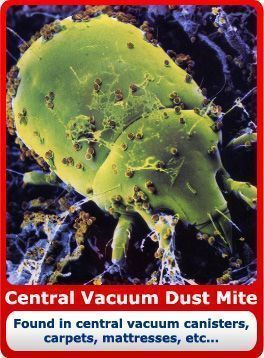 The truth is virtually all central vacuum manufacturers use
either the European made Domel motor (if not the finest-made
motor in the world) or "Ametek/Lamb".
The big difference
between systems is how the central vacuum
unit itself protects the motor from damaging dust and heat
(The two leading causes for premature
motor failure). Most central vacuum motor
manufacturers state specifically in their warranty
"...typical signs of abuse..."including" ...dirty motors,
failure of which was caused by inadequate filtration... will
not be considered in warranty failures". Therefore, built-in
vacuum manufacturers must adequately protect the fan blades
of the motor from debris. The truth is virtually all central vacuum manufacturers use
either the European made Domel motor (if not the finest-made
motor in the world) or "Ametek/Lamb".
The big difference
between systems is how the central vacuum
unit itself protects the motor from damaging dust and heat
(The two leading causes for premature
motor failure). Most central vacuum motor
manufacturers state specifically in their warranty
"...typical signs of abuse..."including" ...dirty motors,
failure of which was caused by inadequate filtration... will
not be considered in warranty failures". Therefore, built-in
vacuum manufacturers must adequately protect the fan blades
of the motor from debris.
Ametek says: "If their filter is too porous, dirt and
other foreign materials can build up on the fan blades over
time." "A motor can only handle a certain amount of this." says
Stormy Greer of Ametek. "but what really causes a problem is
when this material breaks away unevenly. When this happens,
the vibration in the motor increases. The high speed
operation of the motor makes balance critical and as
vibration increases, premature motor failure can result.
This is one reason we are so concerned about adequate
filtration. The amount and rate of dirt build-up on the fans
in an inefficient design or un-maintained system can cause
problems sooner than a customer expects. When this happens,
we all have a problem." The building up of foreign
materials over a period of time is a fact so often ignored
by these manufacturers. If a system can run adequately for
five or six years, they are content. Furthermore, this
is very hard on the motor. This is why
virtually all
manufacturers choose to use a filter of some description in
their unit.
To summarize, any filter you install (screen, cloth, foam,
paper, etc.) will impede air flow in some manner.
On the
other hand, it's best to have proper filtration to protect
the central vacuum motor.

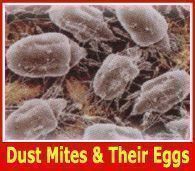 You might ask, why is a filter necessary for a central
vacuum if the unit is going to be vented outdoors? The
primary function of a central vacuum filter is to protect
the central vacuum motor from fine dust particles not
removed by the cyclonic action inside the vacuum system.
Without a filter or screen, all these finer particles pass through the
motor collecting on the fan blades which could cause the motor to
go off balance leading to other problems. This could dramatically reduces motor
life. If the filtration of a central vacuum is good enough, then ventilation indoors
is optional. For example, a unit using a HEPA Filter will filter 99.97% of particles at .3 micron out of the
air stream, not only providing superior motor protection, but
also allows efficient removal of viruses, bacteria,
allergens and dust so they are not circulated back into your
living environment. And, if exhausted in the garage with the
proper filtration bag or Activac II filter, you
will not have dust from the central vacuum accumulating on
walls or vehicles. You might ask, why is a filter necessary for a central
vacuum if the unit is going to be vented outdoors? The
primary function of a central vacuum filter is to protect
the central vacuum motor from fine dust particles not
removed by the cyclonic action inside the vacuum system.
Without a filter or screen, all these finer particles pass through the
motor collecting on the fan blades which could cause the motor to
go off balance leading to other problems. This could dramatically reduces motor
life. If the filtration of a central vacuum is good enough, then ventilation indoors
is optional. For example, a unit using a HEPA Filter will filter 99.97% of particles at .3 micron out of the
air stream, not only providing superior motor protection, but
also allows efficient removal of viruses, bacteria,
allergens and dust so they are not circulated back into your
living environment. And, if exhausted in the garage with the
proper filtration bag or Activac II filter, you
will not have dust from the central vacuum accumulating on
walls or vehicles.

The majority of true-cyclonic systems
must be vented outside the dwelling, hopefully
not near a car port or near a window, which may recycle back
in your house. With a large majority of central vacuum
companies, they are designing their units to have venting
outside as an option, instead of it being mandatory. When venting outside is a MUST and not
an option, we believe this should raise a
red flag to any consumer. Buying a
bagless central vacuum is not a good idea. We came across
this article, "exhausting allows the overflow of dirt to
exit through the exhaust tubing to the outside if it is
over-filled."1 How we read this was, your dirt is being flung
from the exhaust outlet outside when your central vac
canister is too full. That's the most disgusting thing we've
ever heard of. This is why we care very little about bagless
central vacuums. You can see why having a paper-bagged
central vacuum system is the way to go in terms of you and
your families health. |
|
 
More
than 60
million Americans suffer from Allergy or Asthma related issues.
Using a dust bag is the most hygienic and scientifically
substantiated method to dispose of household dirt, hair,
sand, dead skin flakes, dust mites, feces, pollen, bacteria,
carpet fibers, smells and may more lung damaging particles
such as dander, rotting food particles, pet mildew.
Companies that offer Cyclonic units will themselves tell you
that this type of filtration is NOT good for allergy
suffers, and anyone with allergies or asthma should NOT
empty or dump the canister. |
 |
We will be the first to admit that a
bagless central vacuum
system will lose performance as the canister fills up, but
we will also agree with the fact that all
systems will have a loss of performance over a period of
time. It is our belief that semi-annual replacement of a
paper bag is, by far, more efficient with less hassle than
the maintenance required to prevent loss of performance and
motor replacement costs on cyclonic vacuum systems. Our
viewpoint on some true-cyclonic central vacuums sounds great
in theory, but very few companies play the
cyclonic filtration card. We find it very contradicting when
we read through their instruction manuals. To us, it's a bunch of smoke and
mirrors.
We feel that hopefully this section will give you a bit more
understanding on how not to be influenced or persuaded by
gimmicky theories and false claims such as true-cyclonic action,
no bags, no filters, never lose suction, etc.
Some examples of manufactures that offer Cyclonic Filtration are Vacuflo®, Vacumaid®, Royal®, Dirt Devil® and Imperium®.*
|
|
Tips and
Important Things To Know
Never suck up fireplace ashes,
talcum powder, construction dust, sheet rock dust etc. This
may suffocate the motor causing premature motor burn out or
even worse, overheating which is a fire hazard and not
covered under any manufacturers warranty. |
|
|
The
information provided is the opinion of ThinkVacuums.com
|
|
References: 1. Star Power Systems
*some of this information may not apply to all Cyclonic central vacuum systems
*
none
of the manufacturers listed on this page are sponsoring, or
affiliated with Think Vacuums or Thinkvacuums.com
Company and product
names are trademarks or
registered trademarks of
their respective companies.
|
|







 Also, over filling the unit will cause very serious motor
failure or problems. You must empty the canister often, more
than others. You can't let it go further than 3/4 full or
else the dirt will get into the motor causing your motor to
burn out. Before you know it 6 months has gone by and you
find out your motor has seized and failed. This is a
frequent problem, and is NOT covered under warranty. All
this is noted in the small print of all central vacuum
warranties. This is considered abuse and neglect, and
therefore not covered.
Also, over filling the unit will cause very serious motor
failure or problems. You must empty the canister often, more
than others. You can't let it go further than 3/4 full or
else the dirt will get into the motor causing your motor to
burn out. Before you know it 6 months has gone by and you
find out your motor has seized and failed. This is a
frequent problem, and is NOT covered under warranty. All
this is noted in the small print of all central vacuum
warranties. This is considered abuse and neglect, and
therefore not covered. The few manufacturers that claim to use "true-cyclonic", or
a form of, actually don't. "True-cyclonic" is which ALL the
filtration is achieved by creation of a tornado that uses
the force of gravity to separate the dirt and debris from
the intake air. Though some of the cyclonic manufacturers
come very close to "true-cyclonic" action, all of them use
some type of filter in their systems. A cyclonic
manufacturer had this to say, "a guard screen is located
directly above the dirt pan inside the power unit. It should
be inspected and cleaned occasionally. This is to prevent
such things as carpet fiber, cloth, etc. from getting into
the motor's impeller blades.
The few manufacturers that claim to use "true-cyclonic", or
a form of, actually don't. "True-cyclonic" is which ALL the
filtration is achieved by creation of a tornado that uses
the force of gravity to separate the dirt and debris from
the intake air. Though some of the cyclonic manufacturers
come very close to "true-cyclonic" action, all of them use
some type of filter in their systems. A cyclonic
manufacturer had this to say, "a guard screen is located
directly above the dirt pan inside the power unit. It should
be inspected and cleaned occasionally. This is to prevent
such things as carpet fiber, cloth, etc. from getting into
the motor's impeller blades.




 The truth is virtually all central vacuum manufacturers use
either the European made Domel motor (if not the finest-made
motor in the world) or "Ametek/Lamb".
The big difference
between systems is how the central vacuum
unit itself protects the motor from damaging dust and heat
(The two leading causes for premature
motor failure). Most central vacuum motor
manufacturers state specifically in their warranty
"...typical signs of abuse..."including" ...dirty motors,
failure of which was caused by inadequate filtration... will
not be considered in warranty failures". Therefore, built-in
vacuum manufacturers must adequately protect the fan blades
of the motor from debris.
The truth is virtually all central vacuum manufacturers use
either the European made Domel motor (if not the finest-made
motor in the world) or "Ametek/Lamb".
The big difference
between systems is how the central vacuum
unit itself protects the motor from damaging dust and heat
(The two leading causes for premature
motor failure). Most central vacuum motor
manufacturers state specifically in their warranty
"...typical signs of abuse..."including" ...dirty motors,
failure of which was caused by inadequate filtration... will
not be considered in warranty failures". Therefore, built-in
vacuum manufacturers must adequately protect the fan blades
of the motor from debris. You might ask, why is a filter necessary for a central
vacuum if the unit is going to be vented outdoors? The
primary function of a central vacuum filter is to protect
the central vacuum motor from fine dust particles not
removed by the cyclonic action inside the vacuum system.
Without a filter or screen, all these finer particles pass through the
motor collecting on the fan blades which could cause the motor to
go off balance leading to other problems. This could dramatically reduces motor
life. If the filtration of a central vacuum is good enough, then ventilation indoors
is optional. For example, a unit using a HEPA Filter will filter 99.97% of particles at .3 micron out of the
air stream, not only providing superior motor protection, but
also allows efficient removal of viruses, bacteria,
allergens and dust so they are not circulated back into your
living environment. And, if exhausted in the garage with the
proper filtration bag or Activac II filter, you
will not have dust from the central vacuum accumulating on
walls or vehicles.
You might ask, why is a filter necessary for a central
vacuum if the unit is going to be vented outdoors? The
primary function of a central vacuum filter is to protect
the central vacuum motor from fine dust particles not
removed by the cyclonic action inside the vacuum system.
Without a filter or screen, all these finer particles pass through the
motor collecting on the fan blades which could cause the motor to
go off balance leading to other problems. This could dramatically reduces motor
life. If the filtration of a central vacuum is good enough, then ventilation indoors
is optional. For example, a unit using a HEPA Filter will filter 99.97% of particles at .3 micron out of the
air stream, not only providing superior motor protection, but
also allows efficient removal of viruses, bacteria,
allergens and dust so they are not circulated back into your
living environment. And, if exhausted in the garage with the
proper filtration bag or Activac II filter, you
will not have dust from the central vacuum accumulating on
walls or vehicles.



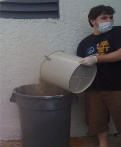
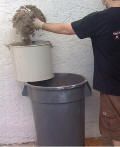
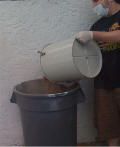
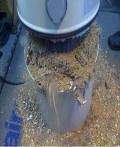
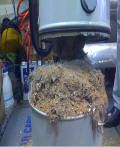
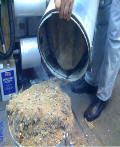
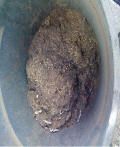
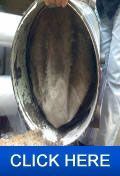

Log In
Create New Account